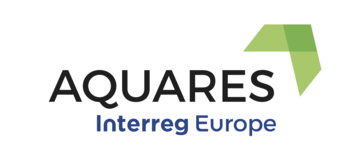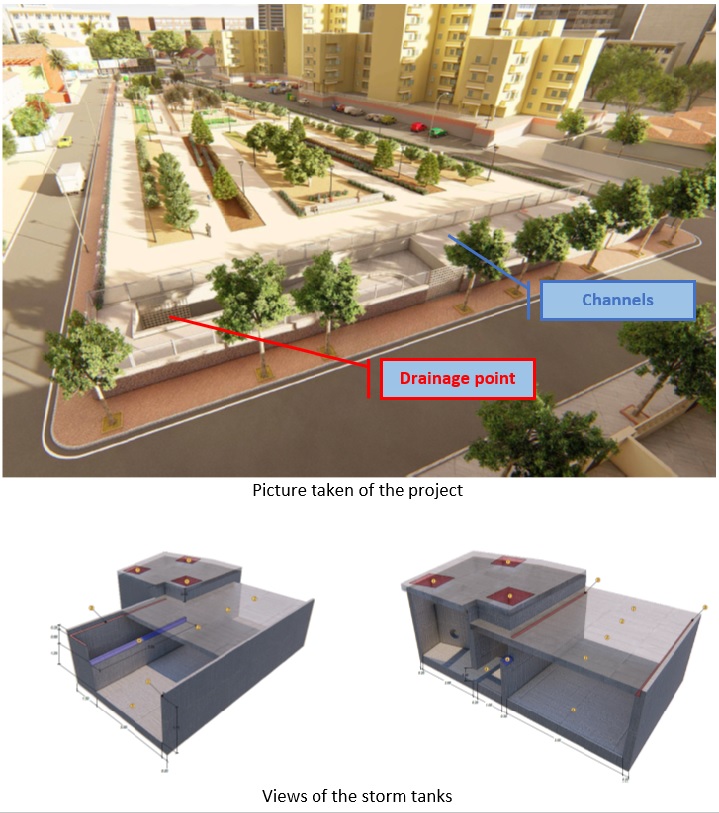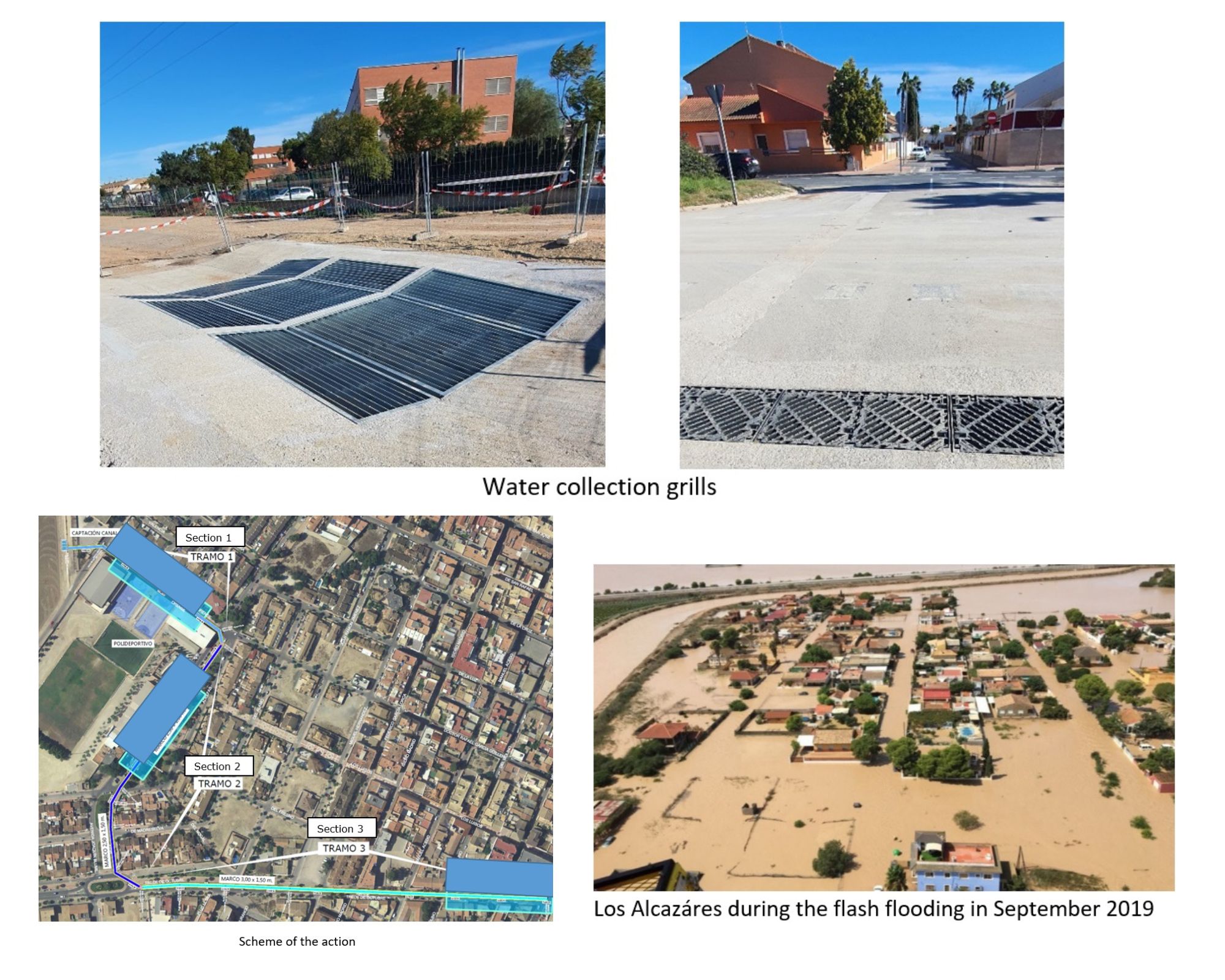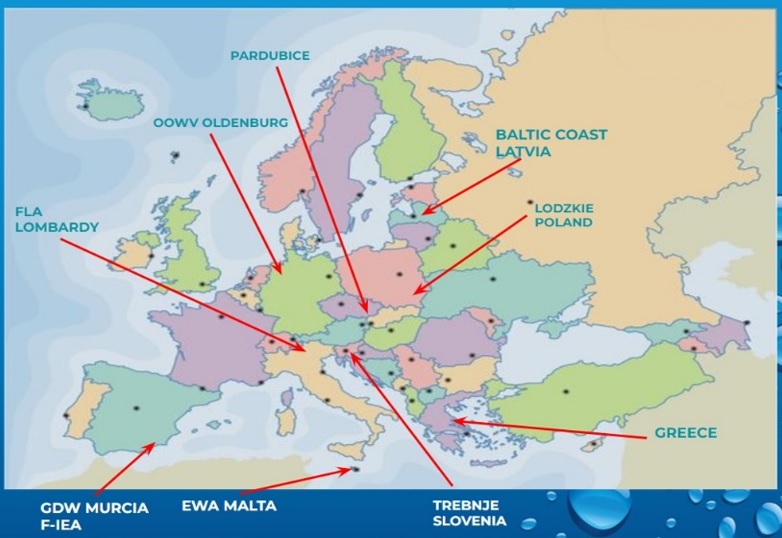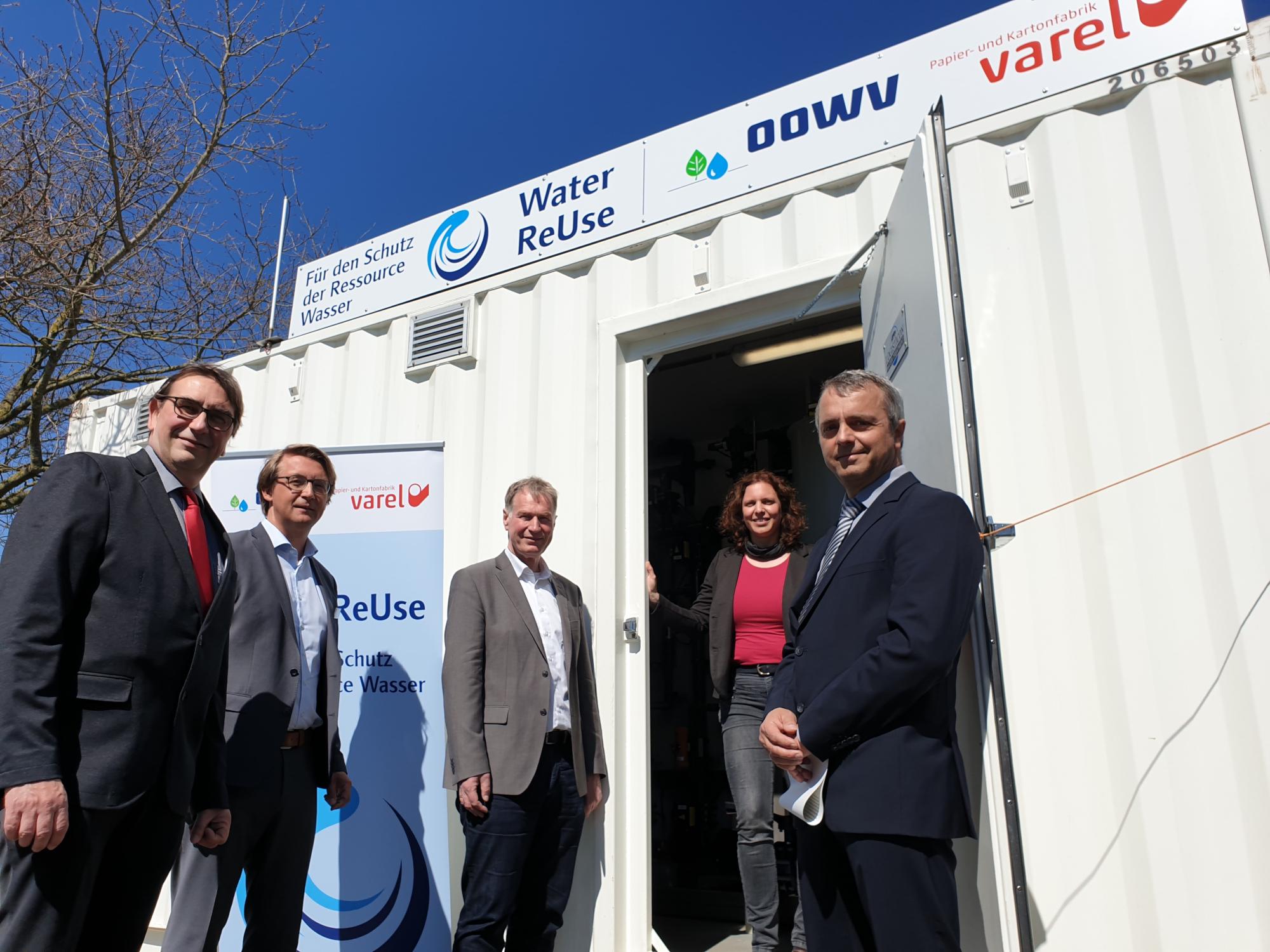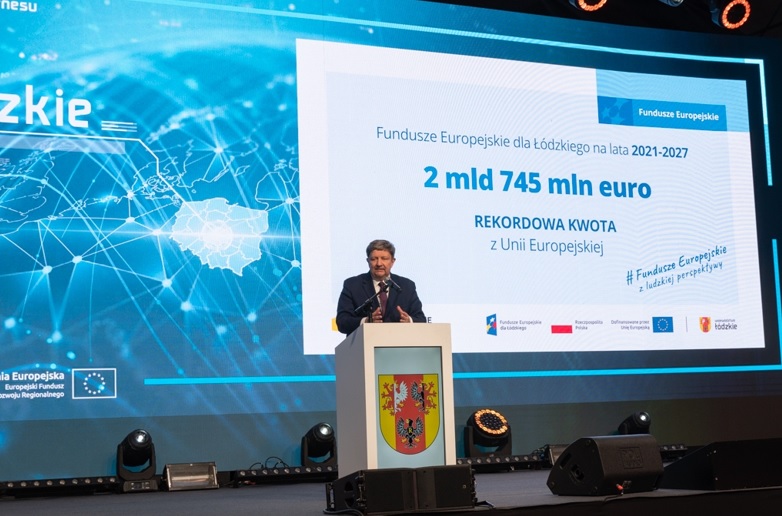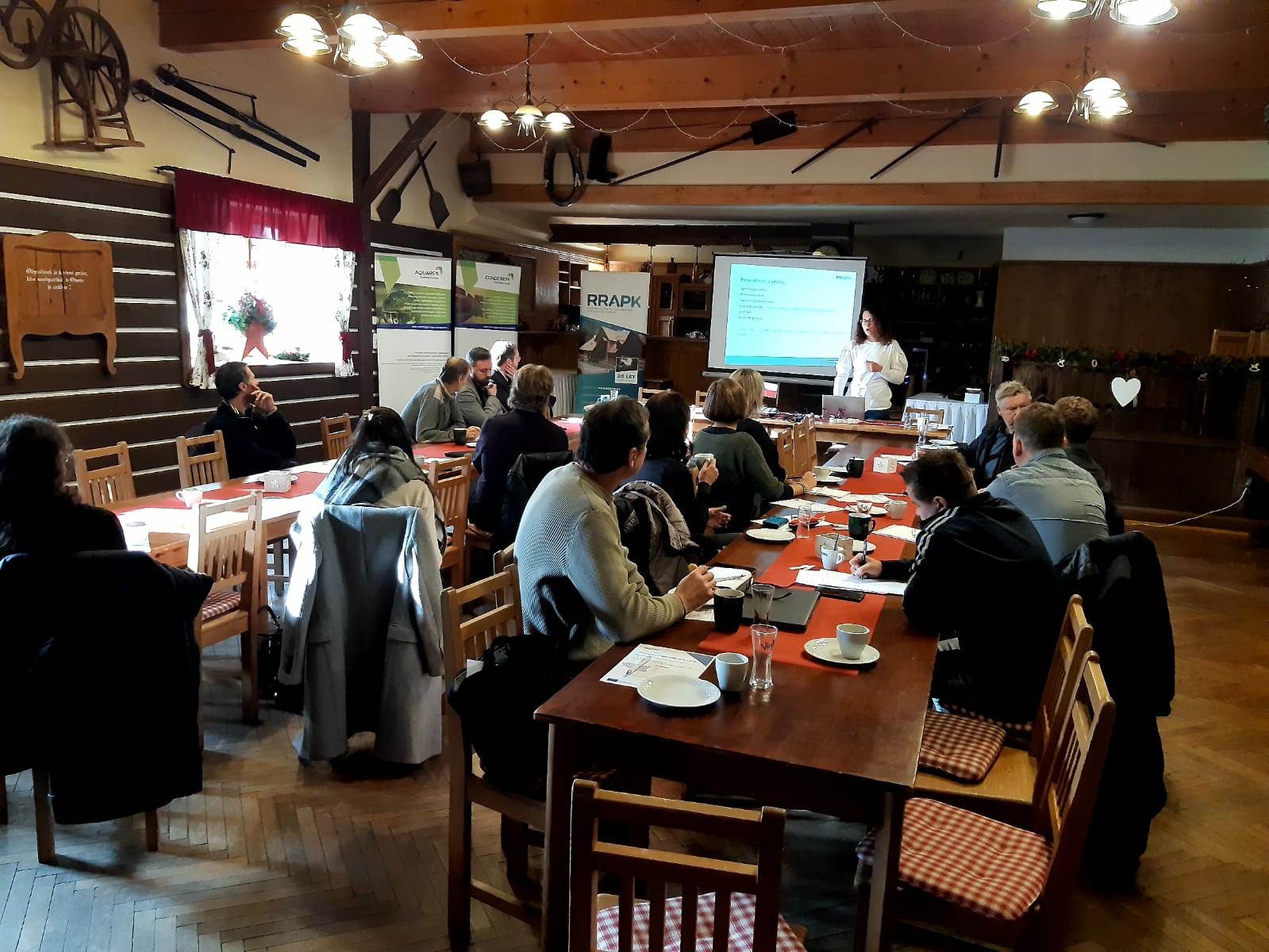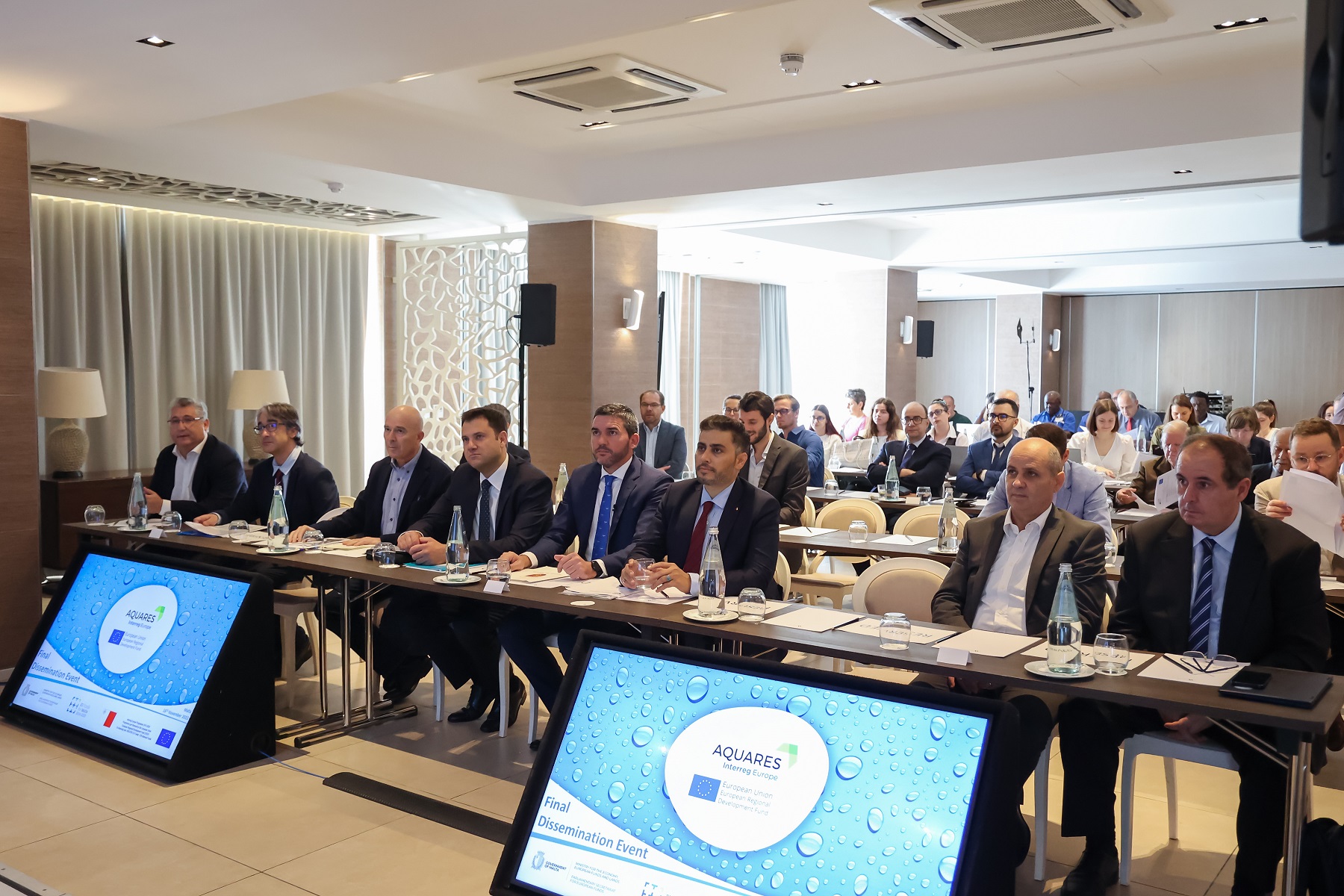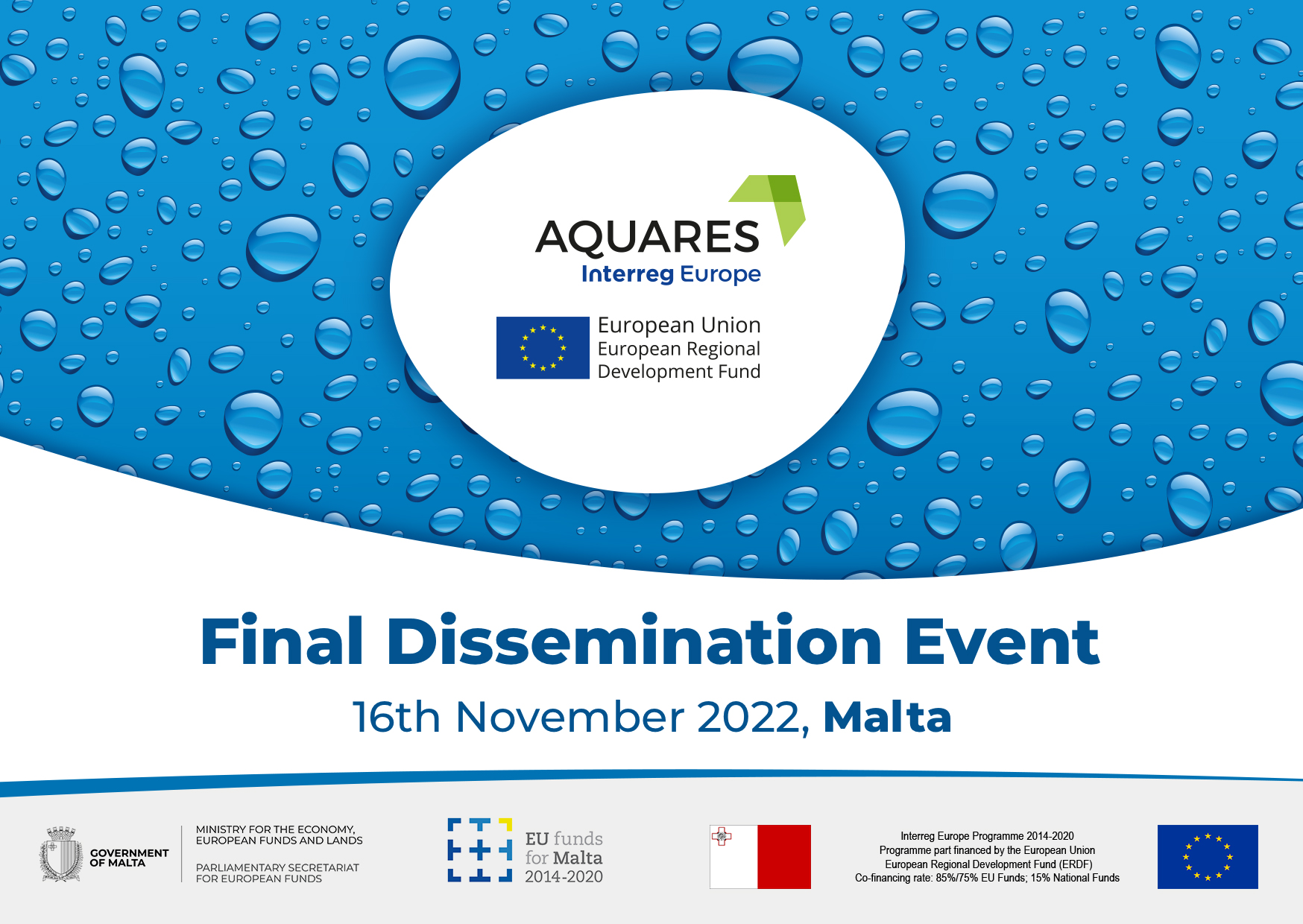Municipalities and businesses should have an enabling environment that allows them to develop their capacity to contribute to economic growth and to maintain and strengthen social cohesion. It is also important to see the need for a circular economy in the activities of these entities. These are mainly stakeholders and project partners interested in the topic of wastewater reuse and water retention in the landscape.
Wastewater recycling has the potential to reduce the consumption of drinking water used for purposes where drinking water quality is not essential, such as toilet flushing and irrigation. The basic purpose of the circular economy is to use waste as a resource. It is nowadays one of the fundamental issues in both spheres - private and public. It is a concept that focuses on sustainable development and includes both social, economic and environmental aspects. In
terms of production, it is a model that enables municipalities and companies to manage resources efficiently and become sustainable in the long term. And such a model can also be economically viable. On the one hand, the state can act as an incentive through various incentives, subsidies and support. However, it also plays an important role in creating legislation that should not hinder circular economy models.
Based on this analysis, we decided to start providing consultation, support and information through training and education on environmental projects. The actions described above will also be supported in the next programming period 2021 - 2027.
